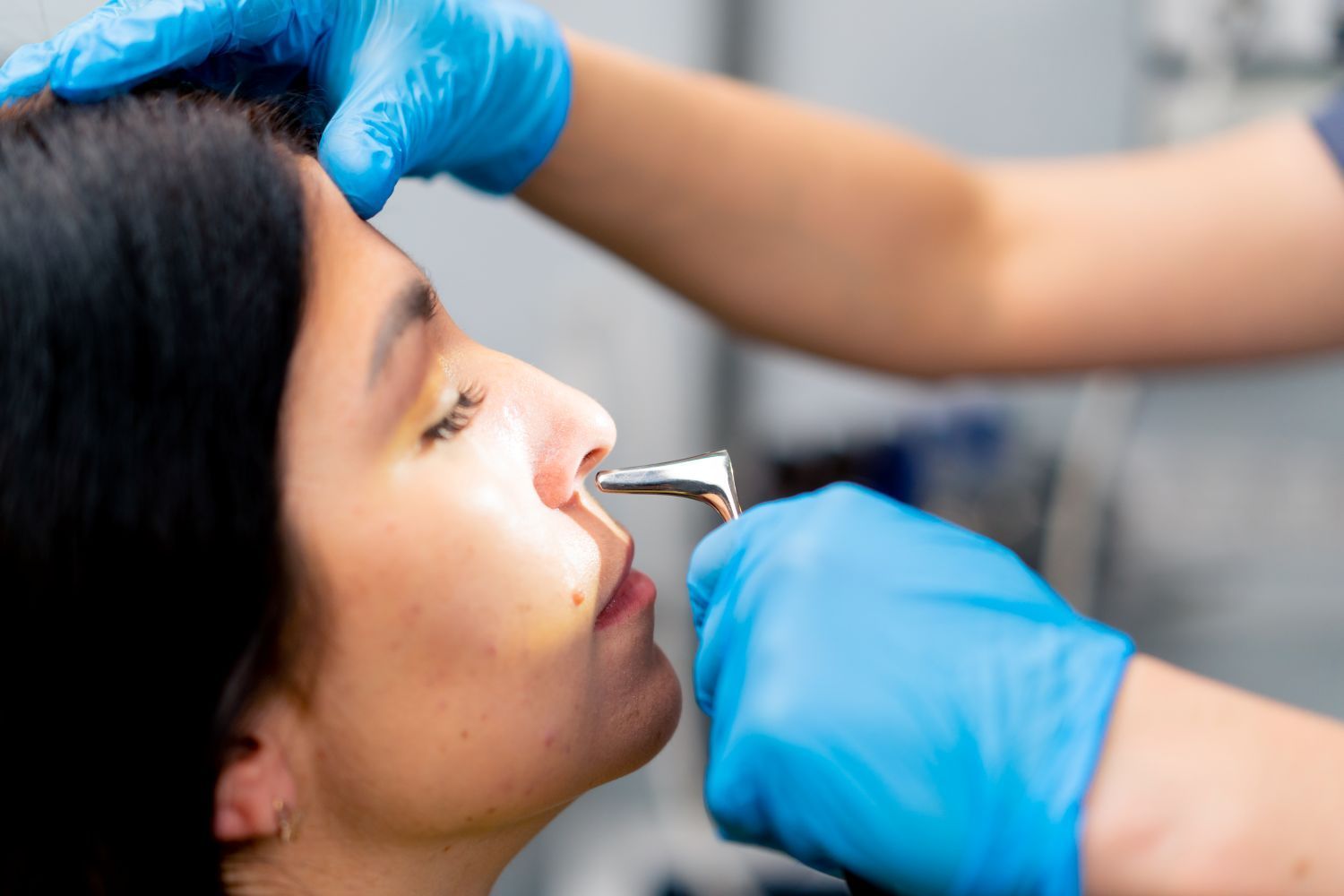What Are Nasal Polyps?
Nasal polyps are estimated to affect about 1-4% of the general population, with higher prevalence rates seen among those with chronic respiratory conditions. For instance, around 30% of individuals with chronic sinusitis have nasal polyps. This condition frequently coexists with other inflammatory diseases, such as asthma. Understanding nasal polyps is essential for effective management and treatment.
Causes of Nasal Polyps
Nasal polyps are soft, noncancerous growths that develop on the lining of the nasal passages or sinuses. They can vary in size and may occur individually or in clusters. While they are usually painless, they can lead to various symptoms and complications. The exact cause of nasal polyps is not fully understood, but they are associated with chronic inflammation in the nasal passages. Several conditions can contribute to this inflammation, including:
- Allergic Rhinitis: Individuals with allergies may experience chronic nasal inflammation, leading to the development of polyps.
- Asthma: People with asthma are at a higher risk for nasal polyps, particularly those with aspirin sensitivity.
- Chronic Sinusitis: Persistent sinus infections can result in ongoing inflammation, making nasal polyps more likely to form.
- Cystic Fibrosis: This genetic disorder causes thick mucus production, which can lead to nasal polyps in affected individuals.
- Certain Infections: Some viral and bacterial chronic infections may also contribute to polyp development.
Symptoms of Nasal Polyps
Nasal polyps can cause a range of symptoms, including:
- Nasal congestion or obstruction
- Reduced sense of smell or taste
- Runny nose (rhinorrhea)
- Facial pain or pressure
- Headaches
- Snoring or sleep disturbances
- Postnasal drip
In some cases, larger polyps can cause significant blockages in the nasal passages, leading to breathing difficulties.
How are Nasal Polyps Diagnosed?
Diagnosing nasal polyps typically involves a medical history review and a physical examination. Healthcare providers may use a nasal endoscope, a thin tube with a camera, to visualize the nasal passages and identify the presence of polyps. In some cases, imaging studies like CT scans may be ordered to assess the extent of the condition and rule out other issues.
Treatment Options
Treatment for nasal polyps aims to reduce their size and alleviate symptoms. Options include:
Medications:
- Nasal corticosteroids: These anti-inflammatory sprays can help shrink polyp size and reduce inflammation.
- Oral corticosteroids: Short courses of oral steroids may be prescribed for more severe cases.
- Antihistamines: If allergies are contributing to inflammation, antihistamines may be recommended.
Surgery:
If medications do not provide relief, surgical options may be considered. Endoscopic sinus surgery can remove larger polyps and improve drainage in the sinuses.
Management of Underlying Conditions:
Addressing underlying issues like allergies or asthma is crucial in preventing recurrence.
Prevention Strategies
While it may not be possible to prevent nasal polyps entirely, managing contributing factors can help reduce their likelihood:
- Control allergies with antihistamines or allergy shots.
- Avoid irritants such as smoke and strong odors.
- Maintain good sinus health through saline nasal rinses.
- Seek treatment for chronic sinusitis or asthma.
When to See a Doctor
Consult an ear, nose and throat professional if you experience persistent nasal congestion, facial pain, loss of smell, or any other concerning symptoms for an evaluation and appropriate management.
If you have been dealing with nasal polyps lately, it might be time to book an appointment with a sinus specialist like Dr. Thomas S. Higgins, MD, MSPH to make sure that you get the proper treatment. Dr. Higgins is a fellowship-trained sinus surgeon and rhinologist who runs the premier sinus clinic in Louisville, Kentucky. You can call him at 502-894-8441 or contact him online!
Thomas S. Higgins, MD, MSPH
Father. Husband. Sinusitis Nerd.















